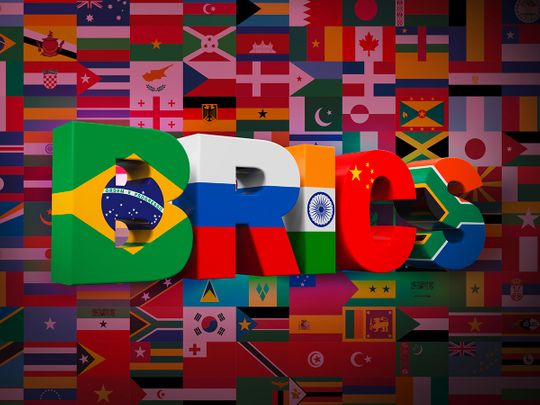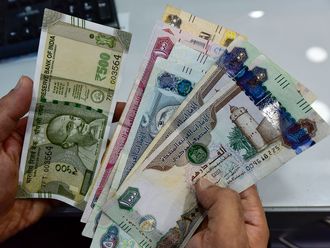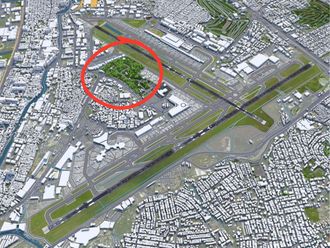
The recent BRICS conference in South Africa garnered significant attention - and sparked controversy - well before its start. The agenda featured pivotal discussions - including membership applications from 20 countries, the prospect of a unified currency for member nations, deliberations on international financial policies, and the fortification of a multilateral global system.
The conference took on heightened importance given the global backdrop, specifically the ongoing Ukraine-Russia conflict and its ensuing economic ramifications that have had profound impact on the world economy.
Being a member of an organisation as prominent as BRICS is undeniably significant. In 2023, the collective economic contribution of current BRICS nations was a staggering 31.7 per cent of the global economy, a leap from the 18 per cent in 2011.
Growing to a 50% share
Predictions suggest that by 2030 this might reach 50 per cent of the overall. This trajectory underscores the escalating economic influence of BRICS and the consequent financial and trade advantages it offers to member countries.
Given the deluge of news and numbers related to the group across media platforms and social network, it's imperative to clarify certain details. Of of the 20 countries that sought membership, only six with significant economic prowess and logistical relevance were granted membership.
These are the UAE, Saudi Arabia, Egypt, Iran, Ethiopia, and Argentina. Such meticulous expansion ensures the inclusion of new countries aligns with the broader goals of BRICS. To further streamline the membership process and uphold standards, an official document has been ratified to guide the admission of future members.
The inclusion of these six is set to significantly bolster the economic, financial, and logistical standing of the grouping. These nations, known for their vast resources and strategic geographical position, bring myriad strengths to the table.
The UAE, beyond being an oil exporter, has firmly established itself as a global focal point for business and trade. Similarly, Saudi Arabia, as the world's largest oil exporter, boasts a prime location along key international trade routes. The addition of the Gulf states will undoubtedly amplify the group's energy dynamics.
Egypt commands the Suez Canal, one of the most critical waterways for international trade. Meanwhile, Iran, Ethiopia and Argentina, each with their respective natural resources and geopolitical clout, will undeniably enhance BRICS' global significance.
With these countries officially joining at the start of 2024, BRICS is poised for an era of heightened influence on the world stage.
As for the proposal for a unified currency, the BRICS countries recognize the current challenges of such an endeavour. As articulated by the South African President, there are no plans to introduce a common currency at this juncture.
Holding off on unified currency
The prerequisites for this, such as a centralized bank and aligned financial and monetary conditions, are not in place given the considerable disparities among member nations. The BRICS countries could potentially adopt a designated account currency for trade transactions within the group.
Such an arrangement would promote intra-group trade, encourage the use of national currencies, decrease reliance on external currencies, and provide a buffer against potential sanctions.
Therefore, the expanded membership of BRICS is expected to influence the global balance of power, propelling the shift towards a multipolar system. French President Emmanuel Macron said after the BRICS conference, "The attempt to expand the BRICS and shape a new world order cannot be under-estimated."
One of BRICS' paramount objectives is to champion a world order that emphasizes fairness, balanced relations, and the intrinsic right of every country to development.
Echoing this sentiment, the Chinese President emphasized viewing development as a universal right. With this vision in mind, the BRICS Development Bank is anticipated to spearhead various development projects within member countries, especially in the infrastructure and energy sectors.
For over a decade, the BRICS group has been steadily advancing towards its objectives. The inclusion of six new countries is anticipated to further expedite this momentum, potentially leading to profound shifts in the global economic and geopolitical landscape.
Such transformation requires time, necessitating recalculations by other influential nations and acknowledgment of the evolving dynamics, particularly the burgeoning influence of BRICS. Recognized as an ascendant force, BRICS champions a pluralistic world vision and advocates peaceful conflict resolution.
Such an approach will pave the way for equitable and sustainable development, building upon the foundation that BRICS has already established for such a paradigm shift.









